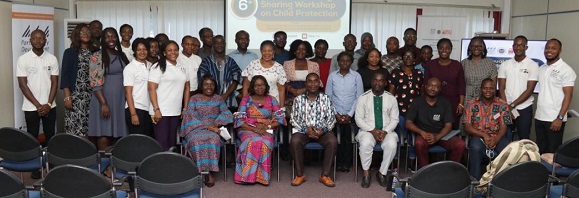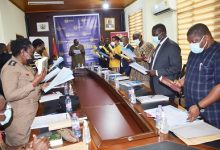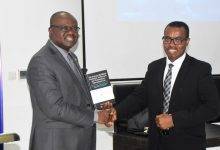Strengthen interventions to tackle extreme poverty – Ministry of Employment and Labour Relations

The government must strengthen interventions at tackling extreme poverty to help address the prevalence of child labour in the country, the Head of Child Labour Unit of the Ministry of Employment and Labour Relations, Elizabeth Akanbombire, has urged.
“Parents and households are in difficult times and even though we have the Free, Compulsory Universal Basic Education (FCUBE), we continue to hear stories of how some are unable to even feed their children before school and fend for them.
Sometimes, we blame parental irresponsibility, illiteracy etc, which are all factors of child labour, but if we are able to deal with the root causes of poverty and bring people up to some level, then we can talk about these other factors,” she said.
Mrs Akanbombire was speaking at the sixth annual knowledge sharing workshop on child labour organised by Participatory Development Associates (PDA)-Ghana, a non-governmental organisation, in Accra yesterday.
On the theme; “Child Labour and the working child: Institutional approaches to child labour remediation in Ghana”, the meeting brought together participants, including policy makers, academia, civil society organisations (CSOs), development partners and the private sector.
The Head of the Child Labour Unit shared the lack of accurate data on the pervasiveness of child labour in Ghana which impeded efforts at tackling the problem.
However, she said per the 2003 Labour Monitoring System report, approximately 1.9 children were involved in child labour, of which 1.4 million were in worst forms of the menace.
“These numbers are threatening and with the Children’s Act, we are saying that every child is very important. Therefore if it is even one child involved in child labour, we have to make sure we remove that child from that risk because it has impact not only on the child, but the family, society and nation as a whole, and is something the government must critically look at eliminating.”
On the part of the labour unit, Mrs Akanbombire said efforts were underway to devise an integrated approach to coordinate interventions at tackling child labour to improve outcomes in that area.
“There are many ongoing interventions skewed towards child labour. Over the years it has been cocoa, fishing and mining because of the interests of donors, but we see our children on the streets daily yet partners are unwilling to intervene there, so we believe the integrated area-based approach system would help us spread interventions broadly and much more holistically,” she stated.
Senior Project Officer at PDA-Ghana, Ms Aseda Mensah, enumerated some challenges militating against the fight of child labour in Ghana, including issues with conceptualisation, coordination and poor implementation of policies, conventions and agreements signed onto.
She called for strengthened partnership and collaboration among all stakeholders to eliminate child labour in Ghana.
Projections by UNICEF indicated that three out of every 10 children in Ghana lived in poverty.
It said a considerable number of children from disadvantaged communities and households were thus exposed to abuse, economic exploitation and vulnerabilities, including child trafficking, child labour, child marriage and working as commercial child sex workers.
The Children’s Act sets the minimum age for general employment at 15 years and 13 years for ‘light work’.
The Act prohibits children under 18 from engaging in hazardous labour, including work in mines, quarries and manufacturing that involves chemicals with machinery, at sea, in bars, or in any job that involves carrying heavy loads.
It allows children aged 15 years and above to work in an apprenticeship provided the employer guarantees a safe and healthy work environment and training, plus keeping a daily register, failure of which may attract a fine of about 10 million dollars or a two-year jail term.
BY ABIGAIL ANNOH






